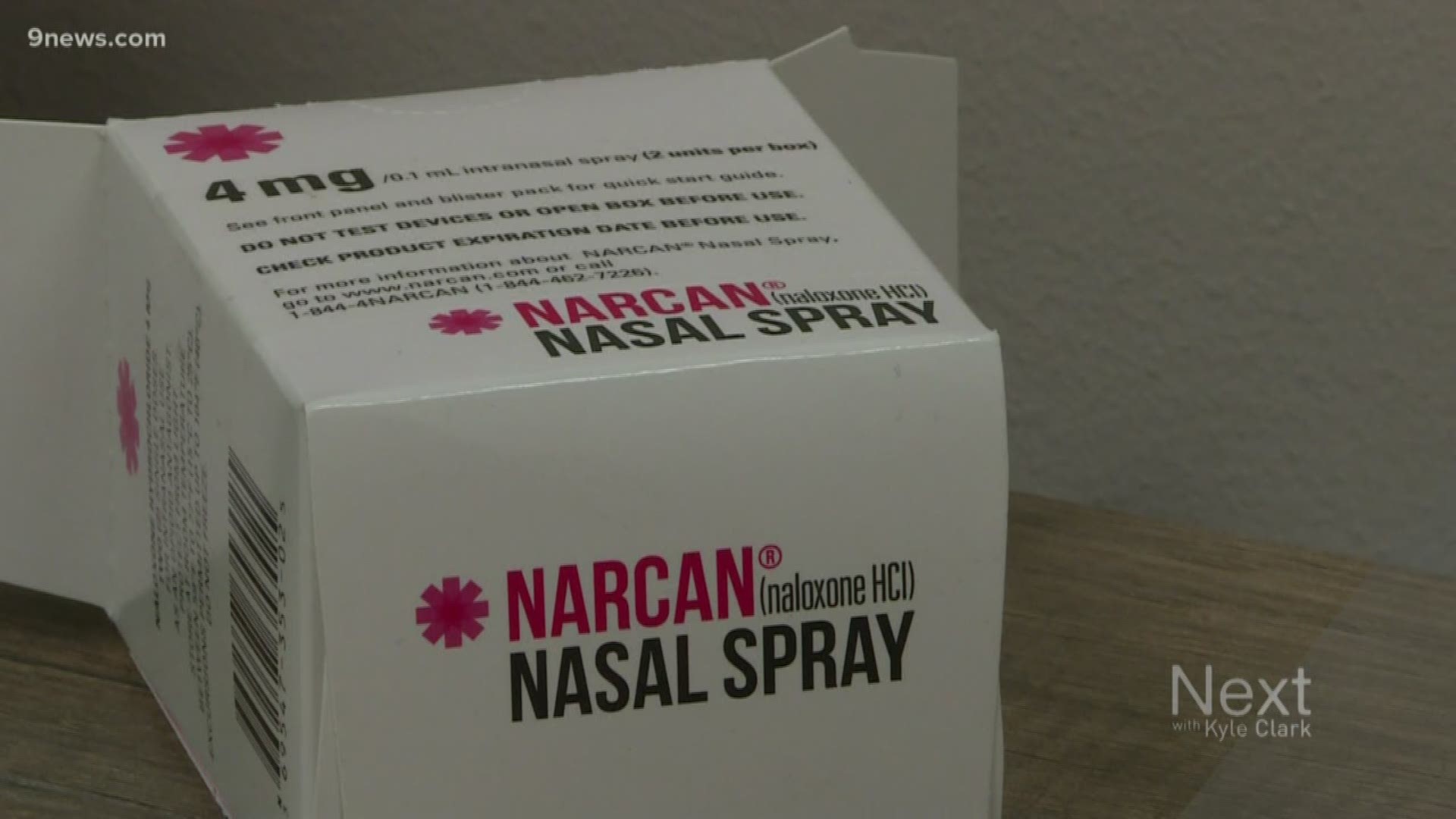DENVER — Experts encourage using naloxone to help reverse an overdose.
Now, state lawmakers in Colorado want to be crystal clear that if someone intervenes to try and reverse an overdose even with expired naloxone, they will not get in trouble.
This is worked into HB20-1065.
Officially, the bill:
"Extends civil and criminal immunity for a person who acts in good faith to furnish or administer an opiate antagonist to an individual the person believes to be suffering an opiate-related drug overdose when the opiate antagonist was expired."
Dr. Josh Blum with Denver Health said that distinction is important.
"I would guarantee that expired Narcan has been used in the past and will be used again," he said.
Narcan is a brand of naloxone.
When lawmakers opened up the conversation to stakeholders to share what they should focus on when it comes to the opioid crisis, Blum made sure to email in his perspective about protecting people who use expired naloxone.
"Especially in a law enforcement setting and you know you are carrying an expired Narcan and you use that Narcan to try and reverse someone," he said, "And unfortunately that person doesn't wake up, doesn't not recover from that, I suppose there could be a concern of liability for that."
The same concern extends to people who use naloxone on someone else they think is overdosing.
This concern reached Democratic Rep. Chris Kennedy (D-Lakewood).
"Want to just protect against that possibility in the future because we are putting a lot of naloxone out into the world right now," he said.
Kennedy said the Good Samaritan Law allows a person to help in an emergency without worrying about getting in trouble or being held liable for the outcome.
He wants the law to be more clear about protecting those who use expired naloxone.
"Think it was unclear if there was expired naloxone what a person would do," he said.
Dr. Rob Valuck, an addiction expert, pointed to two studies to indicate why it's OK to use naloxone after it's expired.
Over the phone he said, a study published in the Harm Reduction Journal in February 2019 showed that even if naloxone was kept in extreme temperatures, and not in the way it's meant to be stored, the drug still had above 90% potency.
He said another study in the journal for Prehospital Emergency Care shows that naloxone dating as far back as the 1990s still had more than 90% potency level and was therefore still helpful in reversing an overdose.
Both Valuck and Blum were very clear the naloxone may not be at peak level but could still be helpful in reversing an overdose.
"But if the only thing you can grab is an expired kit. That's the only thing around and that's what standing between this patient or this person dying of an overdose or being rescued, use the expired kit," he said.
Last year, the state set aside $660,000 to help buy naloxone kits.
This year, there are five proposed bills competing for $15 million, so Kennedy said increasing naloxone funding may have to be addressed at a later time.
HB20-1065 also addresses allowing pharmacists or pharmacy technicians to sell nonprescription syringes or needles.
The fiscal note explains:
"The bill allows pharmacists to sell nonprescription syringes and needles to anyone without being in violation of Colorado's drug paraphernalia law."
It also would pave a path for non-profits to be able to open up a safe needle exchange, but it would be required to go through a stakeholders process, as well as report to the Colorado Department of Public Health and Environment like other public health entities have to when opening a safe needle exchange.
The online fiscal note goes on to say:
"Under current law, a county or district public health agency must get approval from the county or district board of public health and engage in stakeholder meetings in order to operate or contract with a nonprofit to operate a clean syringe exchange program. This bill removes these requirements, but allows counties in a district to opt out of a clean syringe exchange program at any time. It also allows a licensed hospital to operate a clean syringe program."
If the bill passes it would required an appropriation of $250,000 to the Department of Public Health and Environment for fiscal year 2020 to 2021.
The bill would also appropriate "money in the Harm Reduction Grant Program to the department beginning in FY 2020-21."
Blum said if you use naloxone on someone who isn't overdosing, it won't harm them.
SUGGESTED VIDEOS | Full Episodes of Next with Kyle Clark

